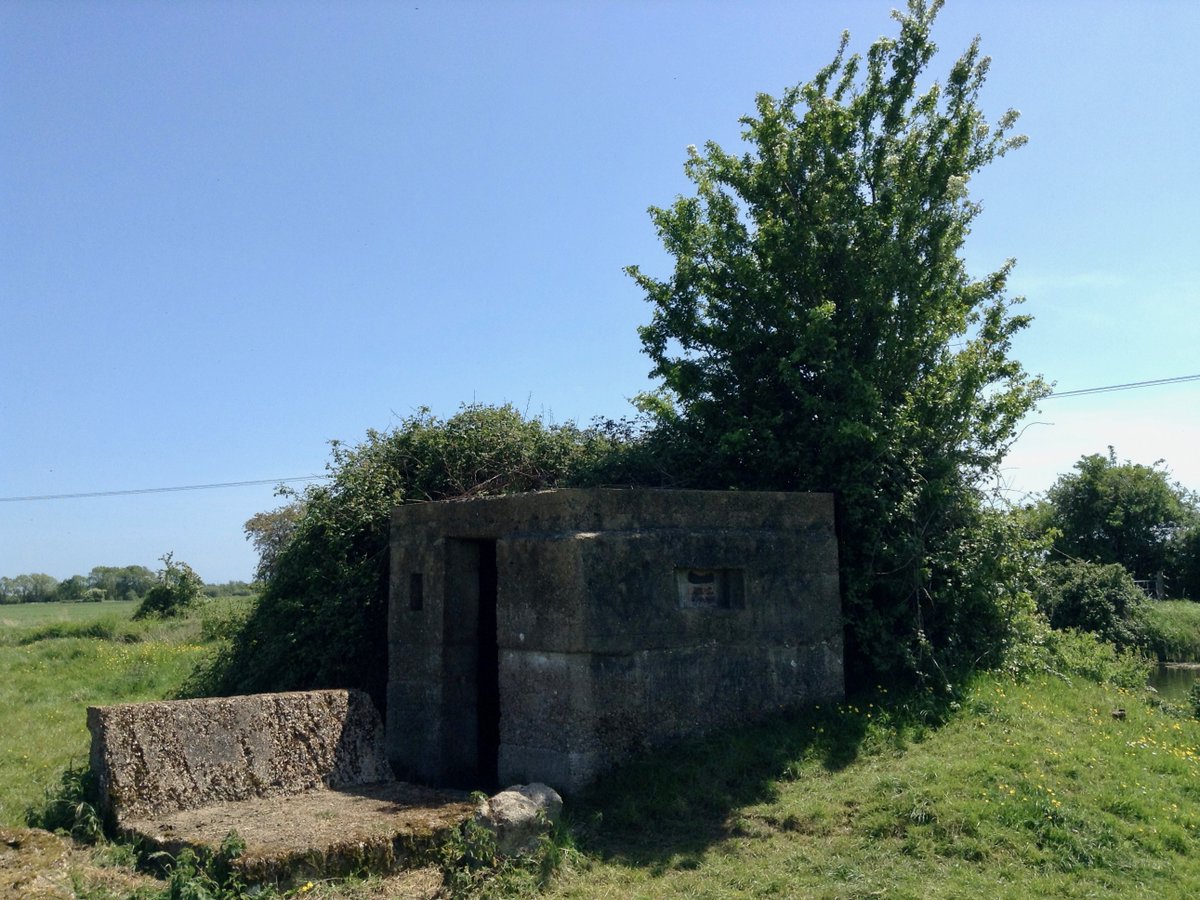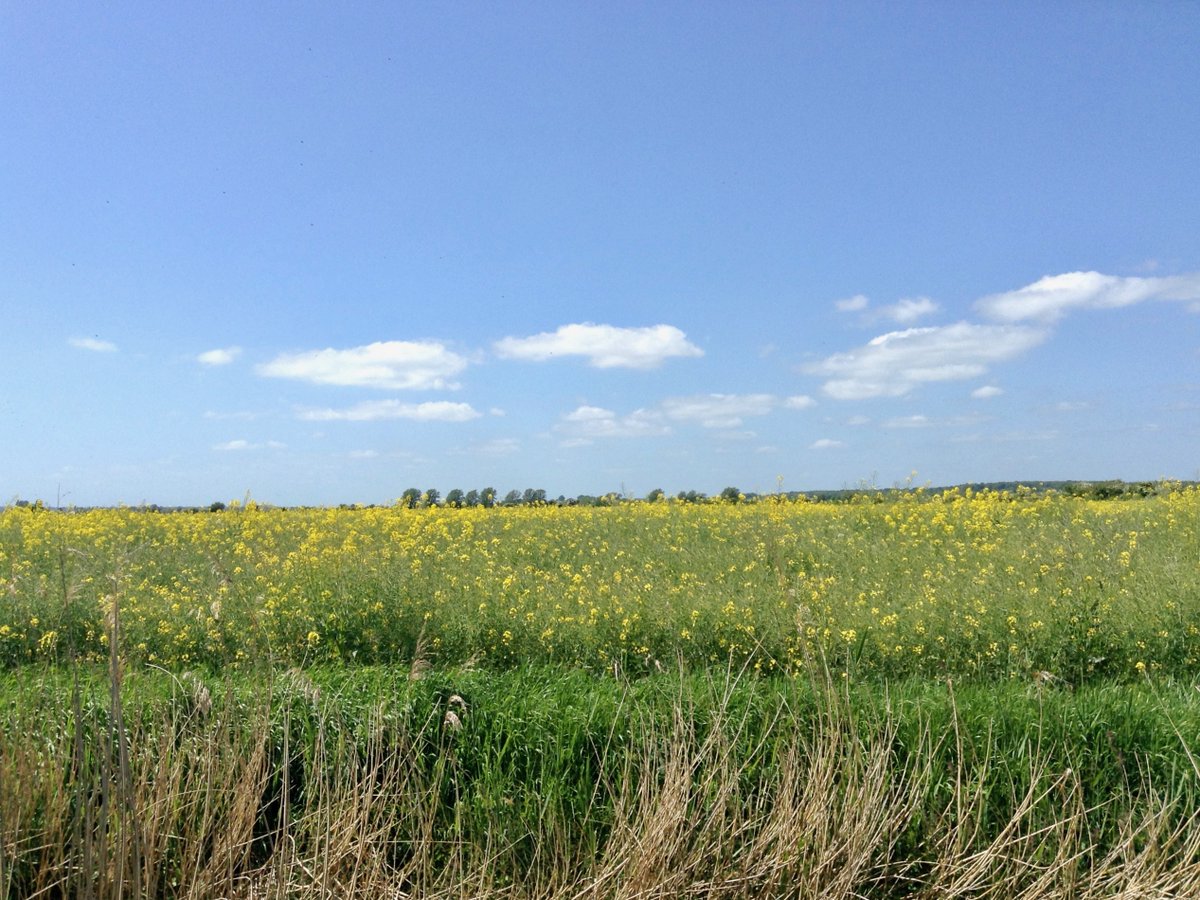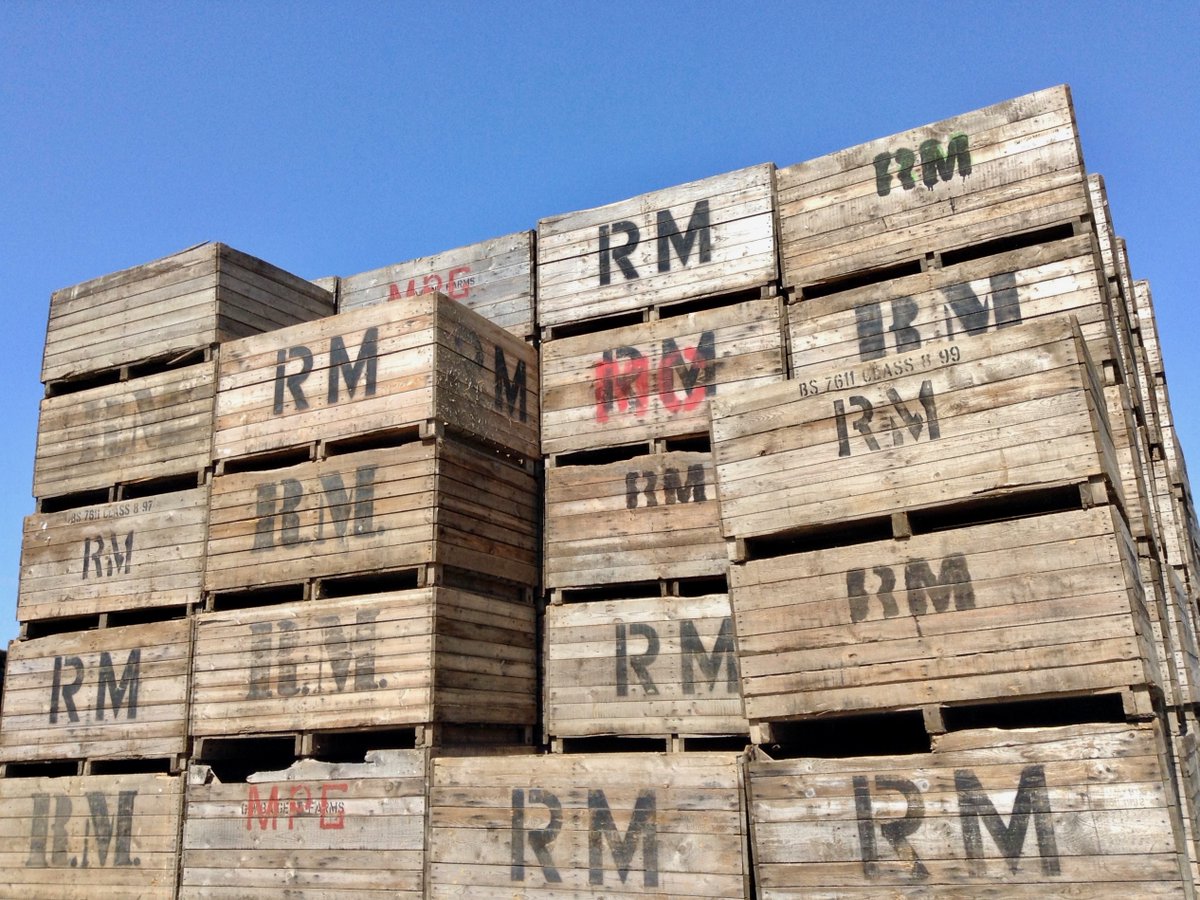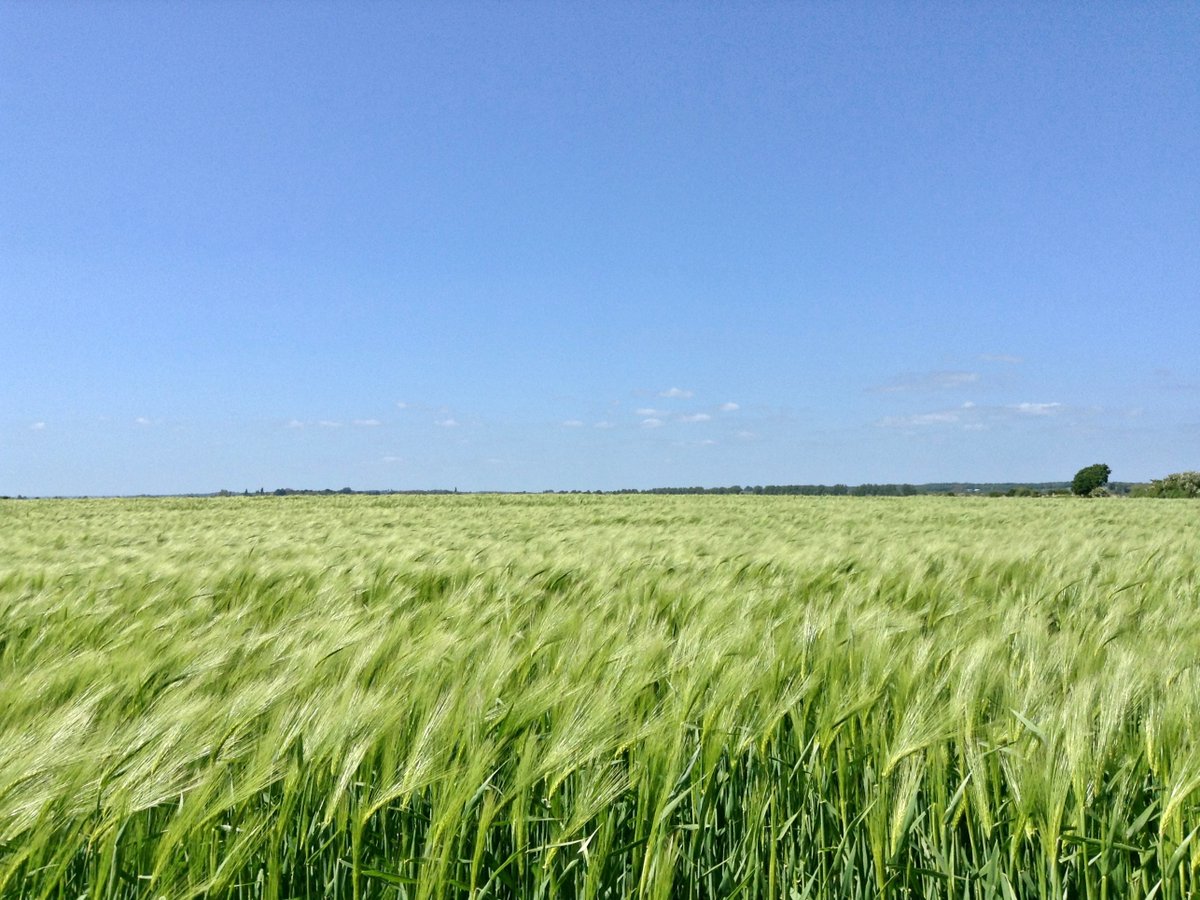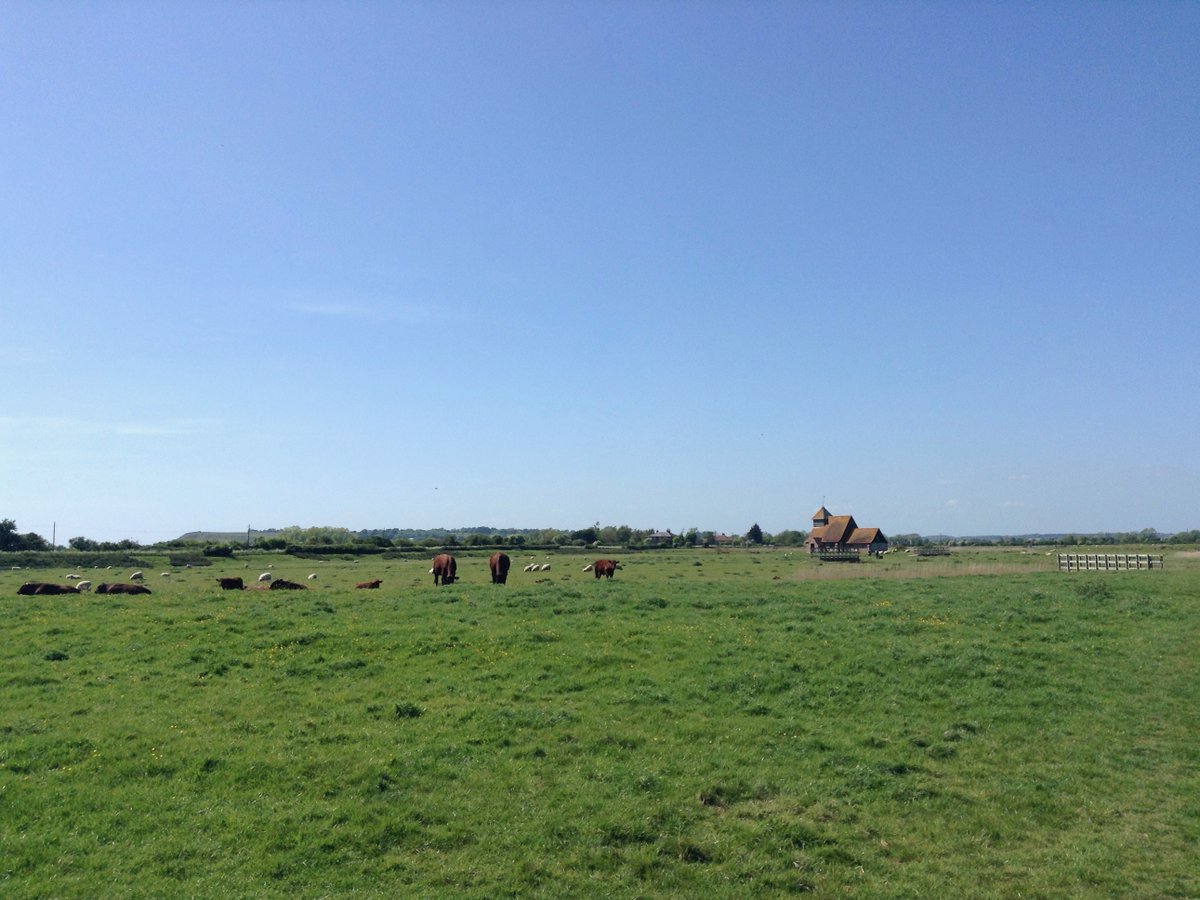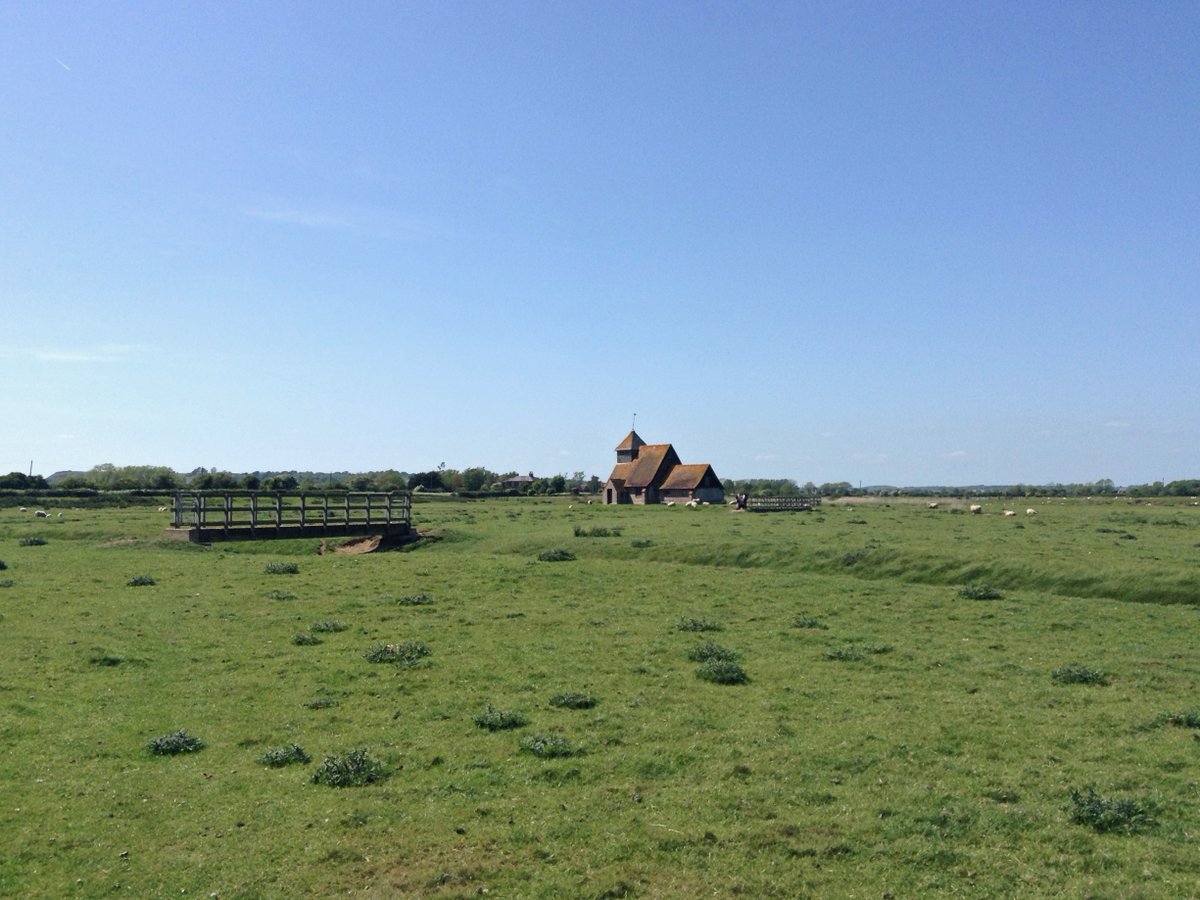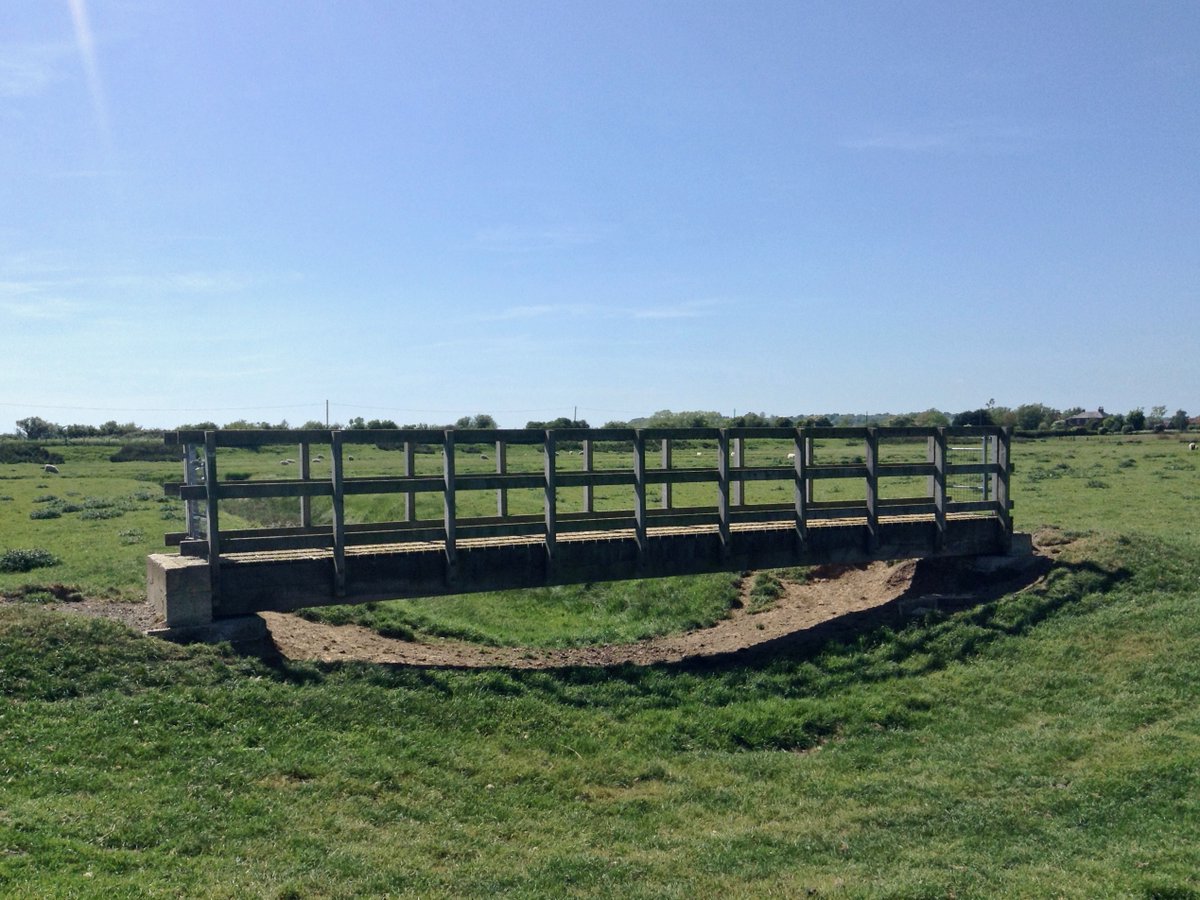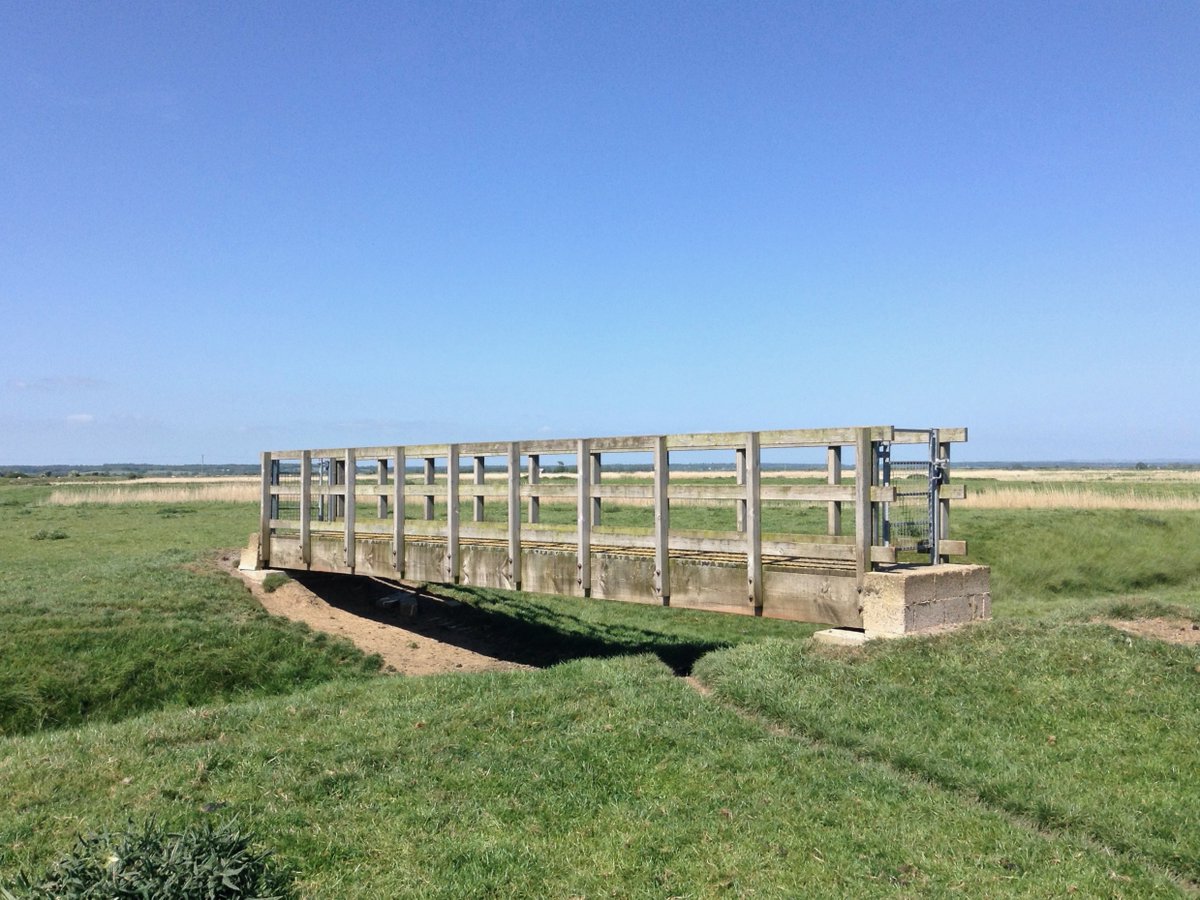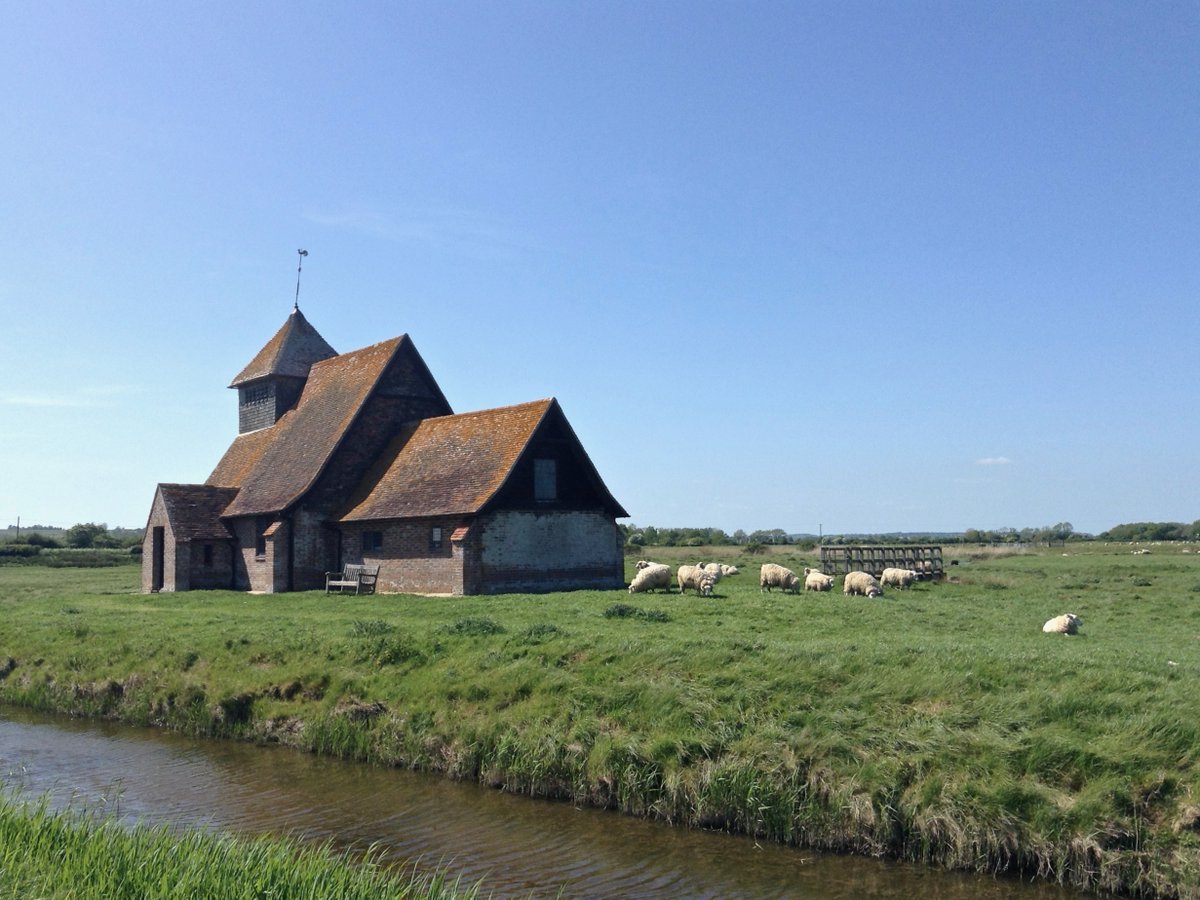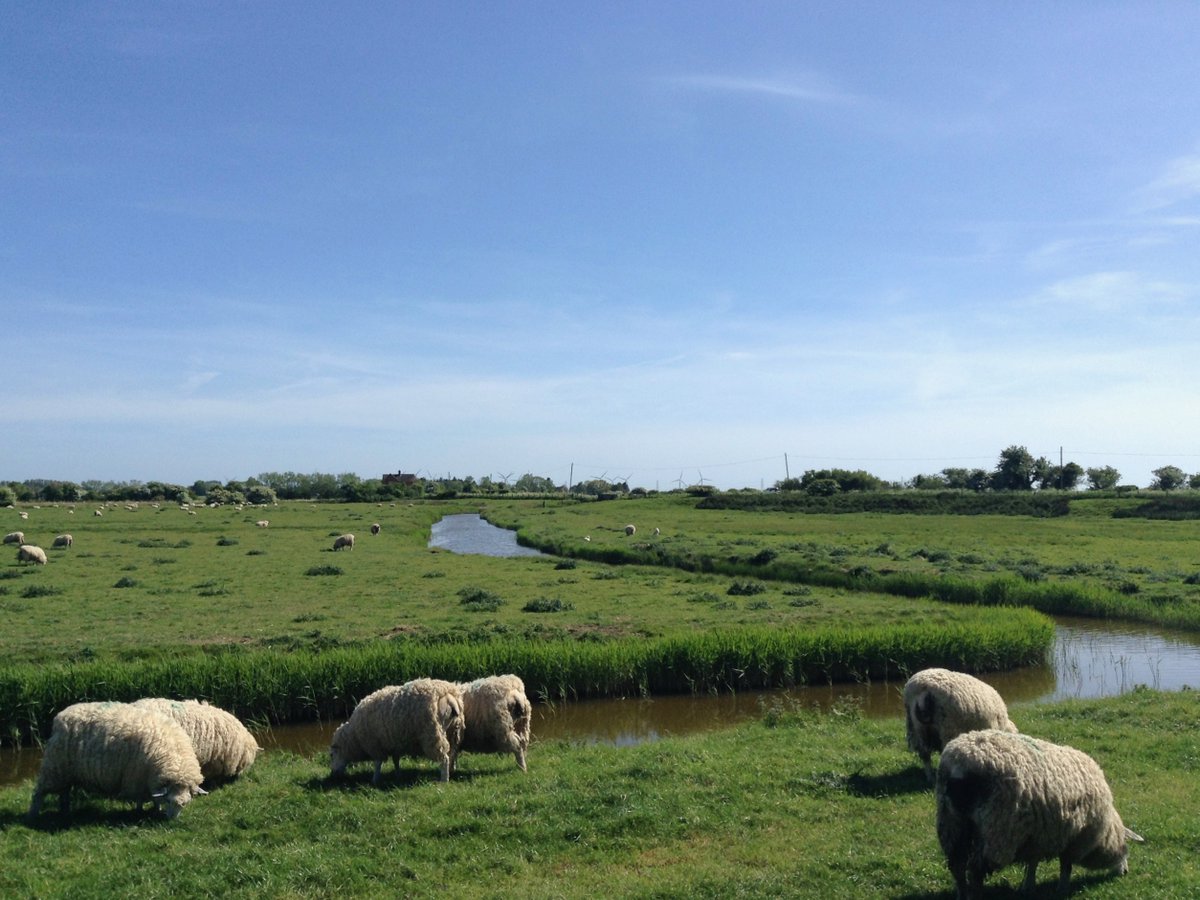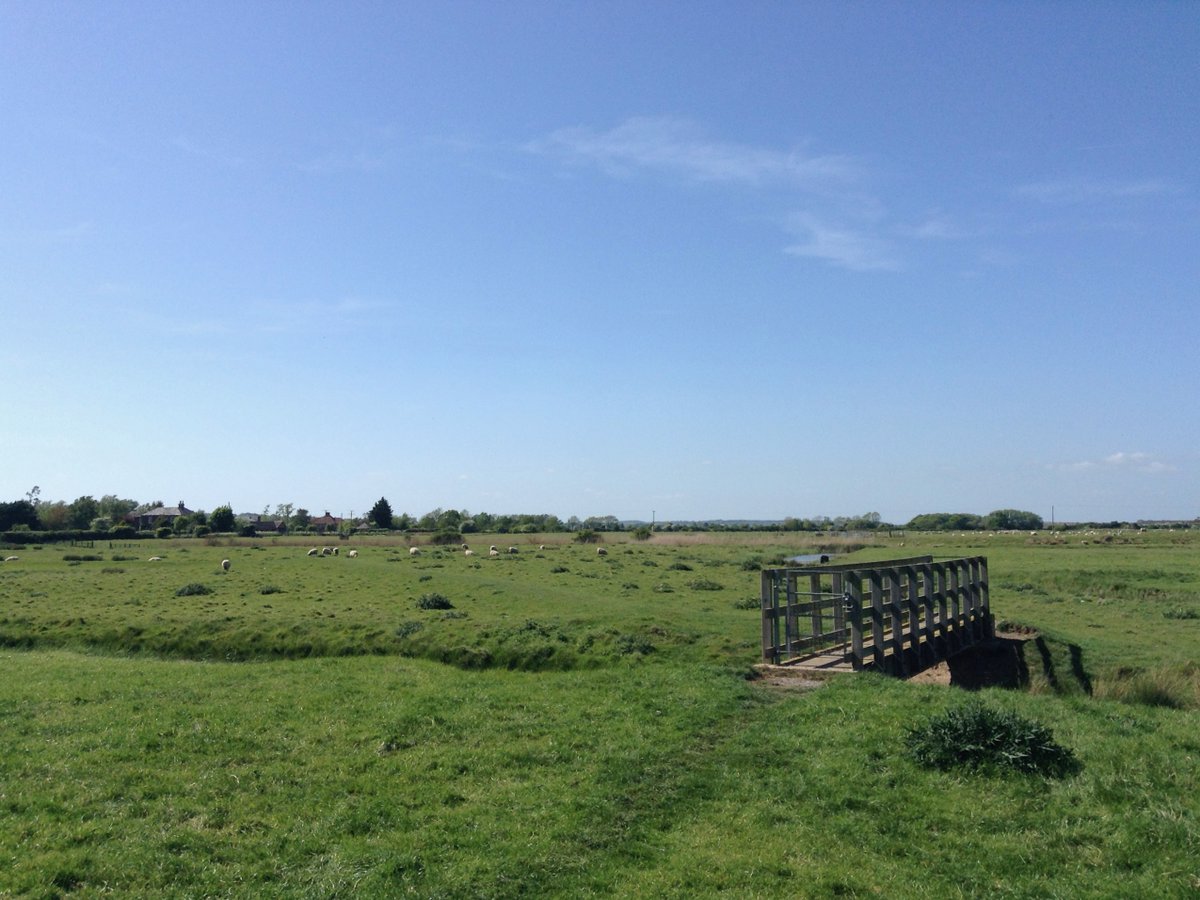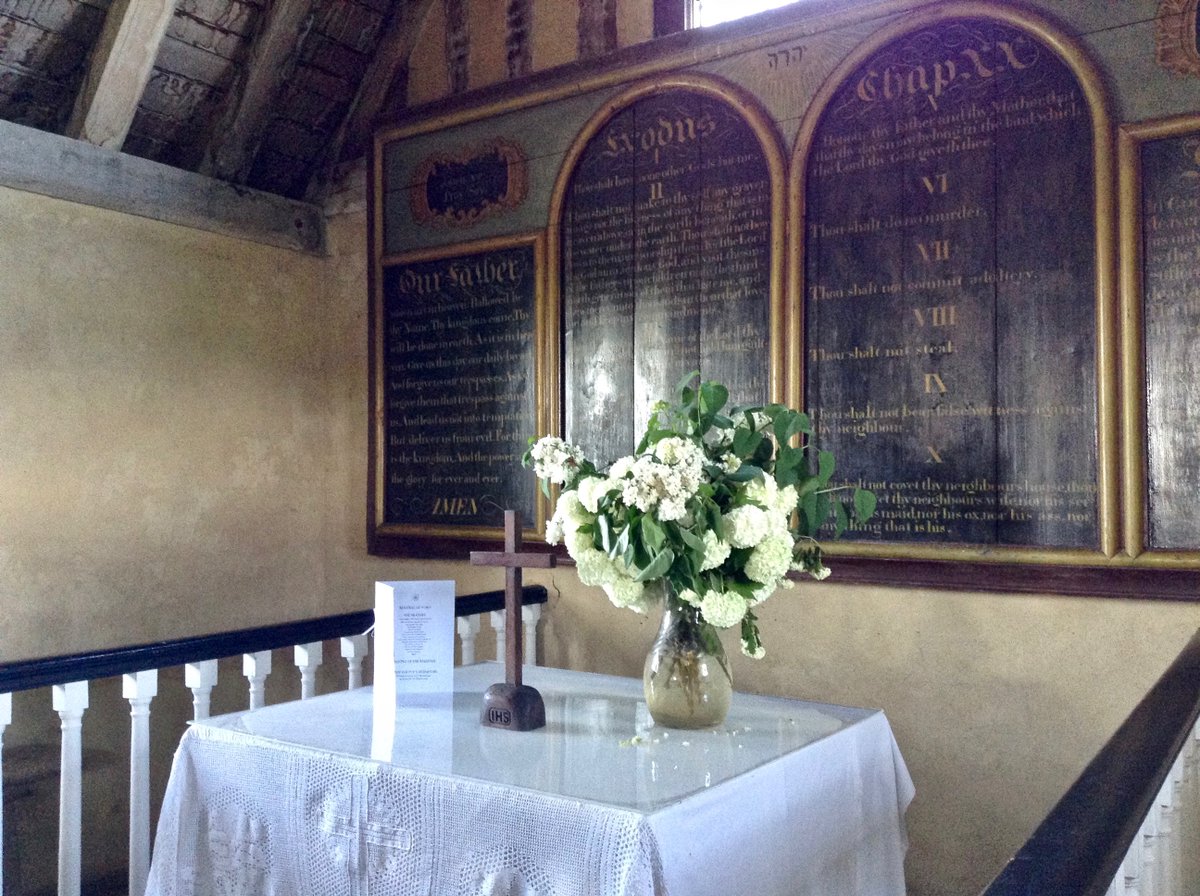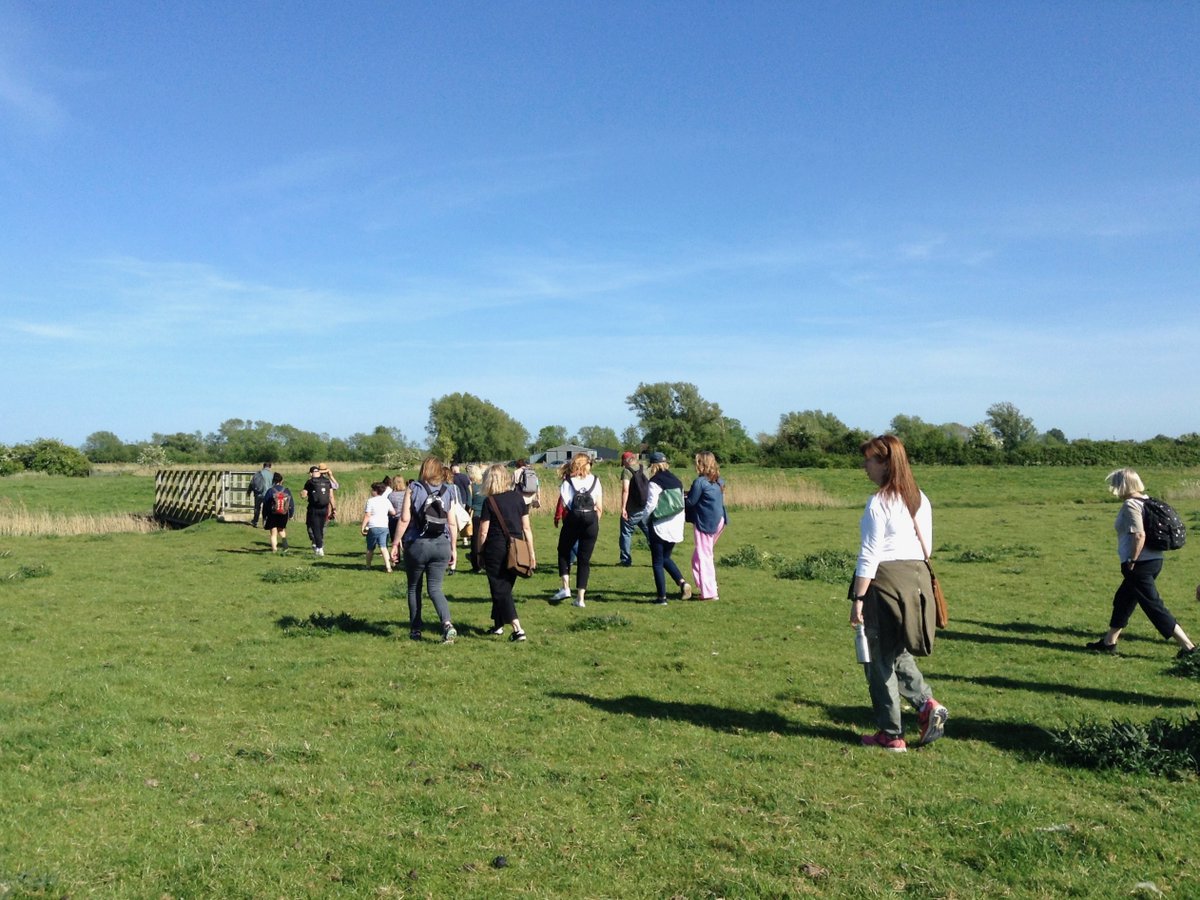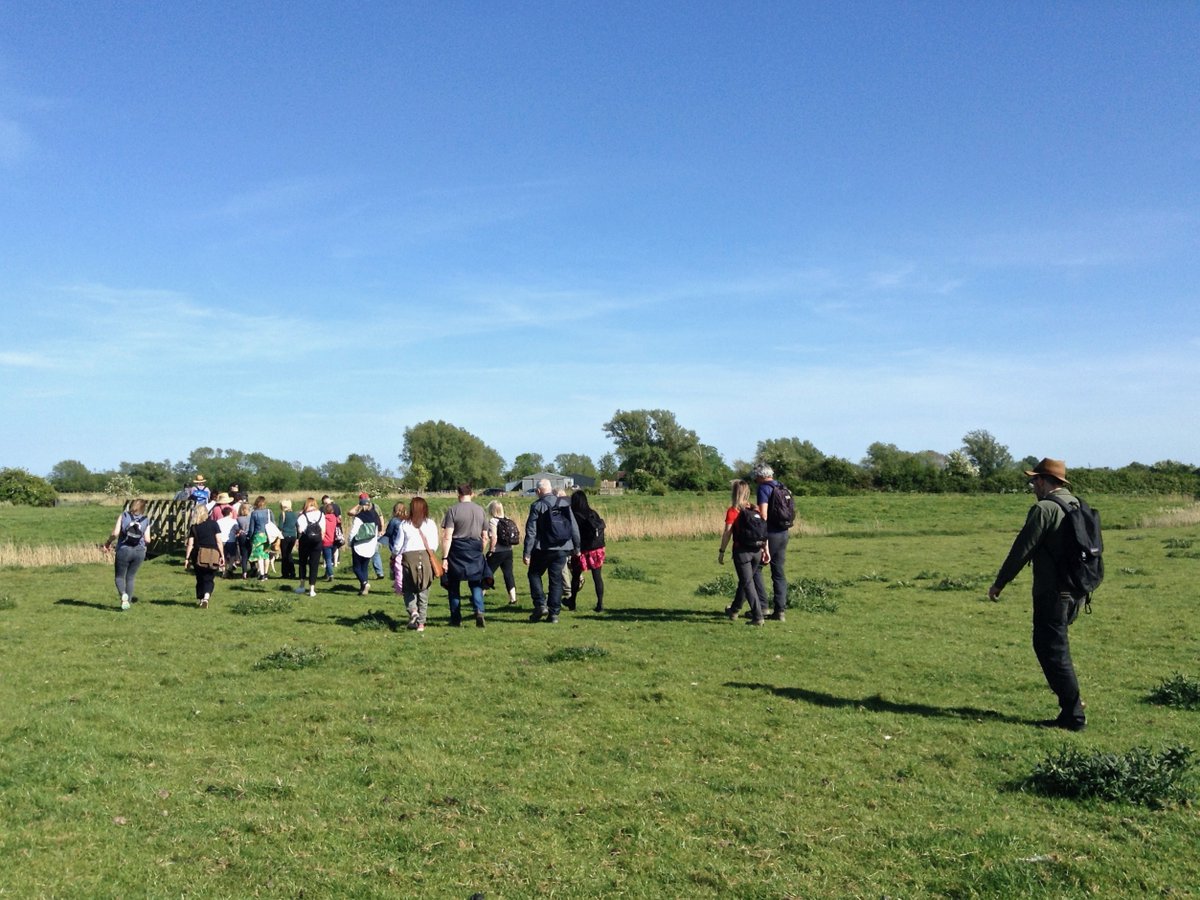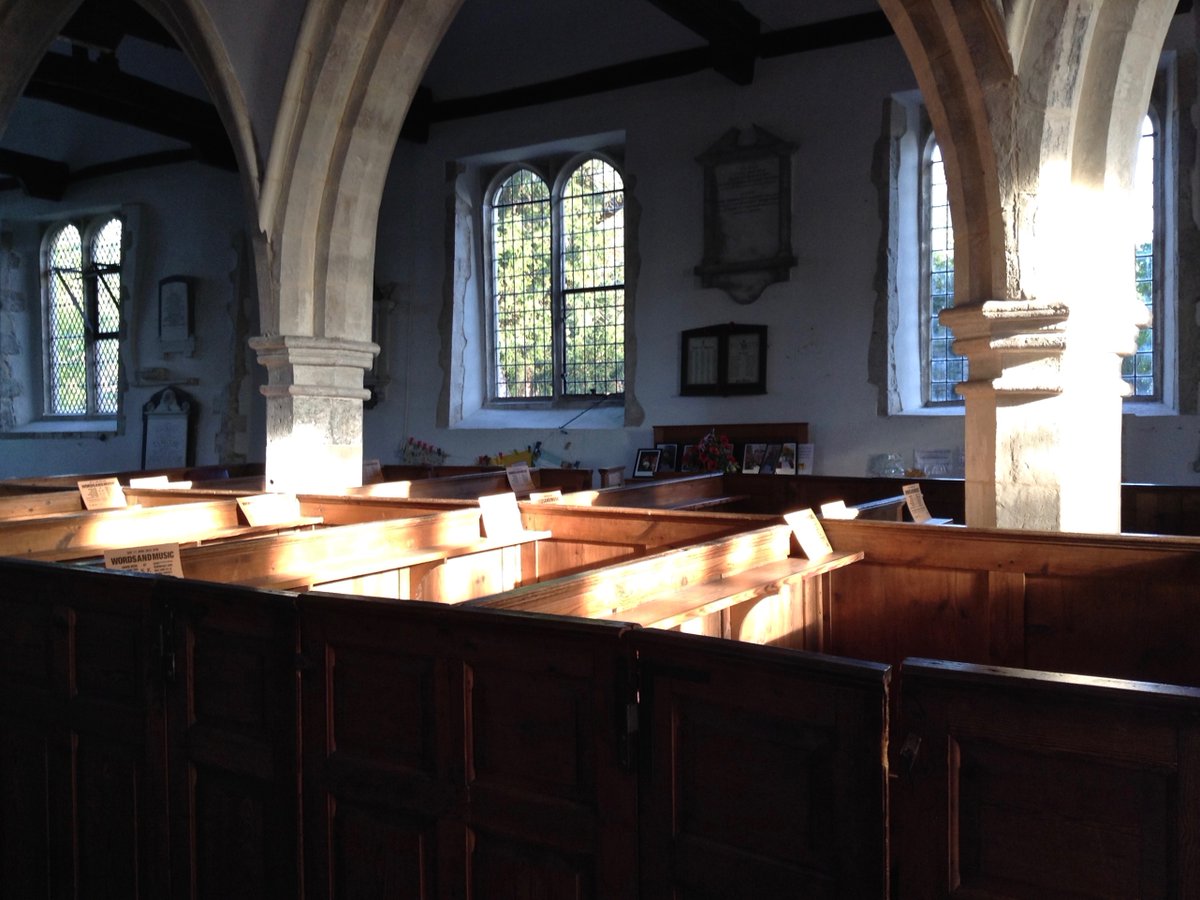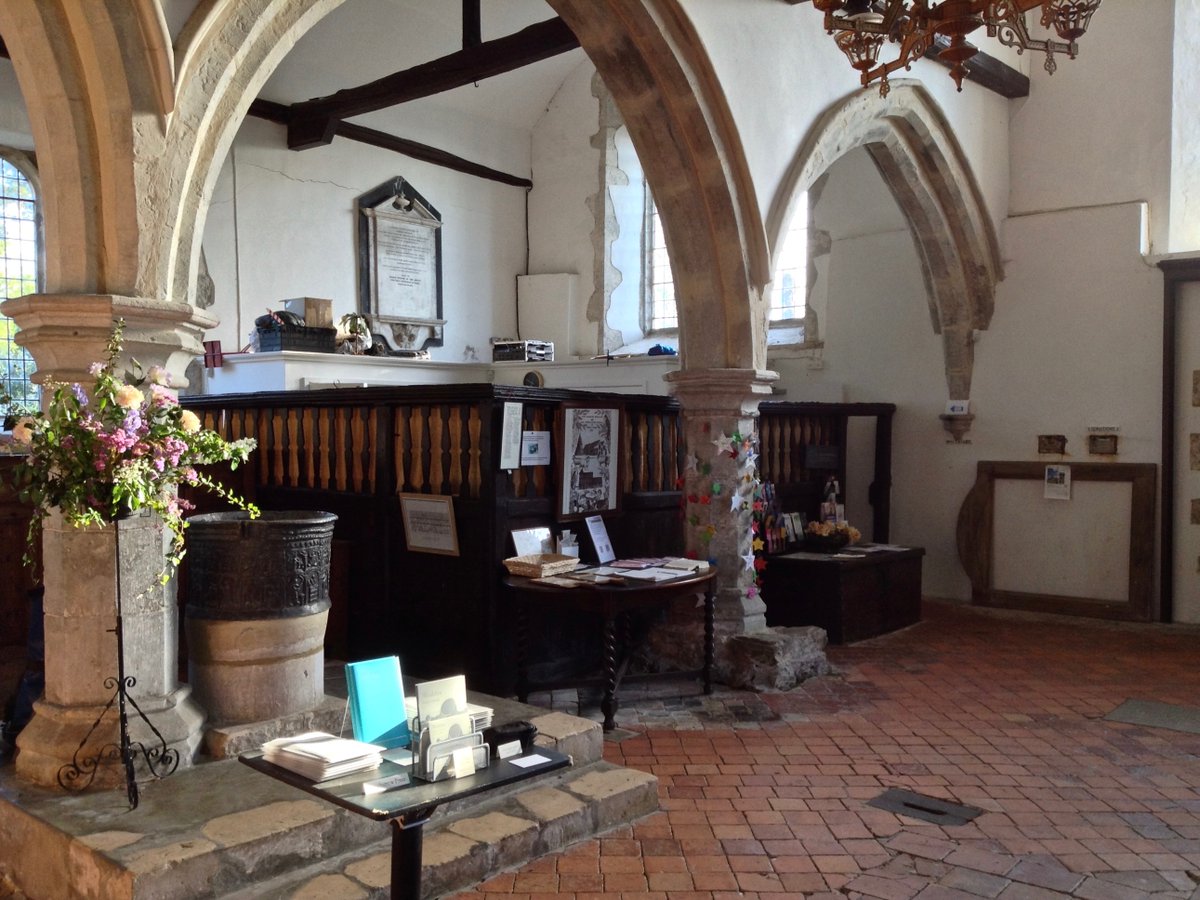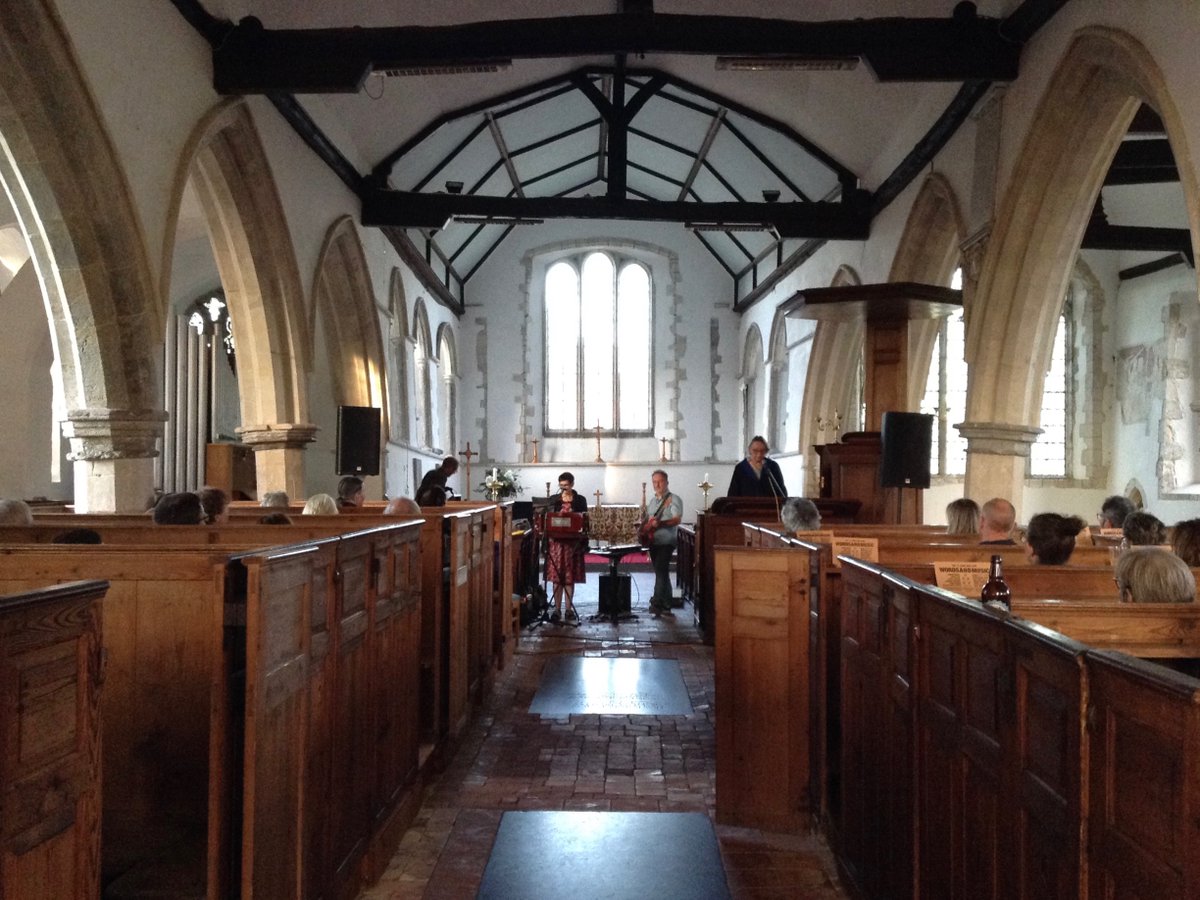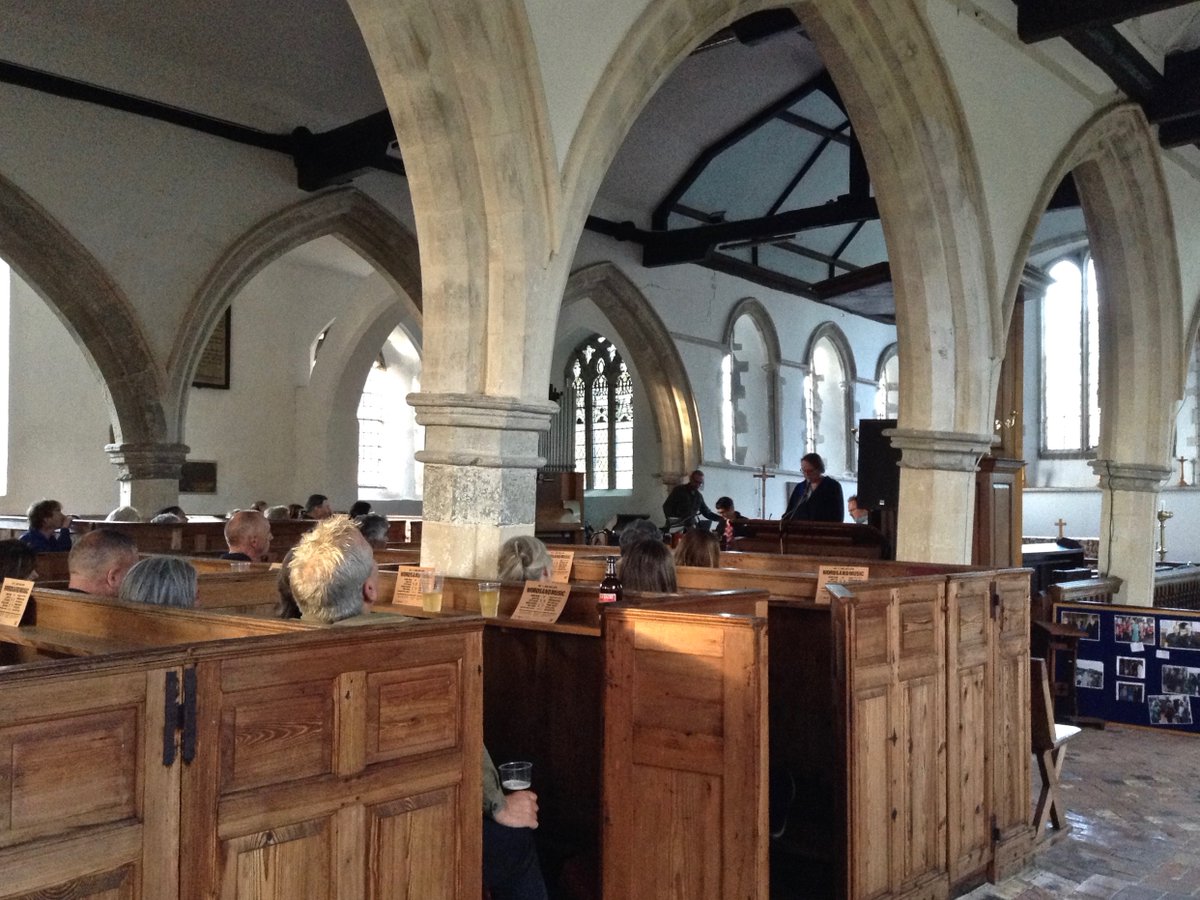
The Road to Wealden: a 🧵
On Saturday, I travelled to Kent for a performance of 'Wealden' by @nancyjgv1 & @thedriftkent. The first stages of the journey were by rail. The final leg of the journey was courtesy of The Longbarrow Foot Express (nonstop from Ashford to Fairfield).
On Saturday, I travelled to Kent for a performance of 'Wealden' by @nancyjgv1 & @thedriftkent. The first stages of the journey were by rail. The final leg of the journey was courtesy of The Longbarrow Foot Express (nonstop from Ashford to Fairfield).
I thought I'd attempt to document some aspects of the journey while I still have a sense of how the pieces fit together. This will probably take several hours, during breaks in the working day, so you might as well come back around teatime when the thread has reached its limit.
The journey began at 4.45am on Saturday when I left the house and started walking to Sheffield railway station with a rucksack full of books. The train was scheduled to depart at 5.30am. The walk to the station usually takes around 55 minutes. This is how every journey begins.
My solution to the scheduling problem was to run 100 yards, then walk 200 yards, until I had made up the time difference, which was somewhere east of West Bar. The streets were deserted, for which I was grateful. I arrived at the railway station at 5.26am and raced to platform 8.
The 5.30 service to London St Pancras stretched out along the length of the platform. I looked for coach M. The long train was actually two short trains stapled together with no gangway connection. Coach G, Coach K, Coach D, the letters out of sequence. At 5.28am I found Coach M.
The carriage was completely empty apart from the other people in it. The tannoy glitched and fizzed and the train manager announced that the service would be diverted and delayed due to a broken-down train between Chesterfield and Derby. The long slow slide into the south.
The staff are doing their best, I thought, half the network is falling apart. The train departed Chesterfield on time and then stopped and started and stopped in a series of landscapes that I didn't recognise and couldn't place. I slumped forward and fretted about my connections.
I slumped back and fretted about the difficulties ongoing since March, a sense that the joints of my work were broken, or that I had simply lost touch, a fault in the head, or the heart, and seeing no way to start, no way to finish. The train pulled into Derby 31 minutes late.
In less than an hour, the arrival time at St Pancras had been revised from 7.36 to 8.00 to 8.10. I would not now make the connection for Ashford. I hadn't thought that delay might also be momentum, but it's there, I can see it, running in reverse. It is not of my own making.
I thought that I should do some work so I picked up a customer query arising from the deterioration in postal services between the UK and Germany since the abolition of VAT exemption on low-value goods in 2021. A package, mailed on 27 April, had still not reached its destination.
I checked another email and then another and realised that there was very little that I could do about either of them. I looked out of the window and stared at a field in what I supposed was now Leicestershire, a field that I should have been staring at 33 minutes earlier.
We were passing through a data mesh, a map that was updating in real time, almost in real time, setting us forward or back to the nearest minute, the status frozen then refreshed. 6.50am. Another field. Mist in the hollows, caught in the early light.
I am thinking of Wednesday's readings at The Fat Cat, the first Longbarrow event to happen indoors, in person, in company, since October 2019. The audience was neither small nor large. The room had ventilation and an unforced sense of connection. Pete read first, then Alistair.
The poems - Hemisphere, Essay on Spam - touched on the role of emerging technologies in shaping our experience and understanding of the world, from mapping to mailshots, screens to satellites, and what it means to compete for resources when the most valued resource is attention.
I was in a room with people I hadn't seen for years and we were all listening to the same thing at the same time. At the end of the evening it occurred to me that the only electrical appliance we'd utilised for the event was Emma's adjustable desk lamp.
I don't dislike technology. We've used laptops, projectors, PA systems, portable stereos, phones and dictaphones in our events. At the very least, it adds another layer to a performance. It also introduces the possibility that something might go wrong. Disruption, delay.
For the online launch of 'Hemisphere', Pete created a Google Earth folder with the places of the poem, and screen-shared the transitions between these places in between the sections of the reading. With each transition, the software or the signal would lag by a few seconds.
It didn't seem to affect the reception of the work. We had to wait, all of us, we had to wait for the technology to catch up with the poem. I don't know if this is what Pete had intended but it made sense. Leicester, this is Leicester, the next stop is Market Harborough.
I gathered up my train tickets and got out of my seat and walked through the carriages in the opposite direction to the direction of travel, which is not natural, and stopped at the threshold of the first class carriage, and held up my tickets to get the conductor's attention.
The conductor left the carriage and met me in the vestibule. 'I'm supposed to be on the 8.10 from St Pancras to Ashford', I said, and left the sentence unfinished. He took the ticket from my hand and took a Sharpie from his pocket and started to write on the back of the ticket.
He was careful, and slow, we both knew that a thick-tipped pen was not the best implement for the job. After a minute he was done. He handed the ticket back to me and said 'Any problems, show them this'. I thanked him and walked back to my carriage, moving as the train moved.
I sat in my seat and examined the ticket on which the ink was still drying. There were four lines of text. The first two lines explained that the delay was the fault of EMR. The third line was a code that I couldn't decipher. The fourth line had a signature and a service number.
The train stopped at Market Harborough and left a minute later. The delay had stabilised at 40 minutes. I tilted my face towards the window and closed my eyes, light flickering over the lids, is this Northamptonshire, have I ever set foot in it, should I look out or let it pass.
A few people got on at Kettering. After a minute the train set off. Behind me, a hammering at the carriage door and a low moan, I couldn't see who was making the sounds, his English was limited but his predicament was plain. 'Door not open.' The conductor turned and walked back.
The conductor asked the passenger to describe the problem. He was supposed to change trains at Kettering for an onward service to Luton, where he was due to catch a flight later that morning. But the door hadn't opened, and now he was stuck on a train running non-stop to London.
It wasn't clear why the door hadn't opened. Where the fault was. Mechanical or electrical or manual. The conductor spent a few minutes with the man, writing out a new itinerary, change at St Pancras for Luton, you won't need to buy another ticket, you can still catch your flight.
He took it all in and left the carriage. The conductor had done his best and the man seemed reassured by the information but I still felt bad for him as we accelerated through Northamptonshire and Bedfordshire and Hertfordshire, how many stations, how many miles between them.
Another day in London, 22 years ago. I am sitting in the reception of a fourth-floor office a few streets from Victoria station. It is warm, bright, a little after 9am. I am called into a small interview room. I walk through the door and wait to be invited to sit down.
I am being interviewed for the role of Conference Producer. This is the culmination of several months of posting out CVs printed on a Canon StarWriter 30 in an attempt to get a job in the Creative and Marketing Sector before it is too late. I am 27. It is already too late.
It is a panel interview, conducted by two people, they introduce themselves and then ask the first question. I am unable to answer the first question, or the second question, as the stammer which I thought I had left behind in adolescence has decided to sit in on the interview.
Somewhere around the fourth or fifth question I manage to bring the stammer under control, with a technique I learned at the age of 14, but the interviewers have lost interest in the words before they are out, and so have I. There are no more questions.
I leave the interview room and leave the building. I feel useless, so I walk around Westminster, looking for a place where I can donate blood, then realise that it doesn't work like that. I walk around in my suit for another 10 hours. At 11.30pm I catch the last train to Swindon.
At 00.15 the train pulls into Didcot and by the time it pulls away I am asleep. I wake up 20 minutes later as the service is leaving Swindon. There are no good options. I could spend the night at the next station, which is Chippenham, or try to walk home, 20 miles without a map.
I disembark at Chippenham and rapidly confirm what I already knew which is that there are no more trains to Swindon tonight. I consider hitching but I don't know where to start from. After 10 minutes I walk to the taxi rank and enquire about the fare to Swindon. It is £40.
I agree, because I don't know what else to do, and get in the back of the taxi, and pass the journey thinking about money, money that I don't have, spent in pursuit of a career that I didn't want. It might have been worse, I think, I might have got the job.
The train passed under a road bridge and then another and a slowness, it was gradual, settled in, and I knew that St Pancras was close. I shouldered my rucksack and counted my tickets and I thought of the man at Kettering, he had his work cut out, would he make his flight.
8.19am. A standstill and a long pause. The door panel lit up and I pressed it twice and stepped down to the platform and walked through the open ticket barriers and past a roped-off concourse, a queue without a line, two hundred people waiting to board the train we had just left.
They would be late too. Our delay was their delay. I could see it in their eyes, they knew. I squeezed onto the escalator and spent the descent trying to remember where the Southeastern platforms were and when I stepped off at ground level I realised that I didn't know.
I turned left and kept walking until I met the first set of ticket barriers and scanned the destination board overhead and drew a blank on Ashford. This was Thameslink, not Southeastern, Brighton, not Dover. The ticket office gave me directions, second left, up the escalator.
I stepped off the escalator and turned right for the platforms, numbered 11-13, the 8.37 boarding at platform 12, calling at Stratford International, Ebbsfleet International, Ashford International, Folkestone West, Folkestone Central, Dover Priory. I walked to the end and got on.
8.30am. I sat down and took from my rucksack a bottle of water and Emma's iPad Mini, a first-generation model, released in 2012, now discontinued, unsupported, obsolete. I signed into the iPad and opened Gmail and messaged Emma to let her know where I was and that I loved her.
The message hung in Drafts, picked out in red, I stared at it for perhaps a minute then realised that I hadn't connected the iPad to the onboard wi-fi. I ticked the Terms and Conditions box without reading the Terms and Conditions and the email completed its transition to Sent.
I continued to stare at the screen as the train left the station. My seat was facing away from the direction of travel, I knew that I would see nothing of where we were going, only a little of where we'd been, it seemed appropriate, somehow, to be hauled backwards into Kent.
The train was clean and fast and new and in no time at all we had stopped at Stratford. I understood something of how we had got here, one part north to four parts east, but what followed was a blank. I had walked both banks of the estuary and now I couldn't put them together.
I didn't know which side of the river we were on, had we crossed under the Thames at Greenwich, would we be passing through Rainham or Erith. Would it make any difference if I knew. The Apple Maps app would take an age to load on the iPad and we would be somewhere else by then.
The window misted and blurred and when I looked out again we were sweeping into wire and glass and aluminium. If Ebbsfleet International was actually Ebbsfleet then we were two miles south of Swanscombe Marshes, designated as a SSSI in 2021, and the intended site of a theme park.
Swanscombe Marshes is one of just two places in the UK where the critically endangered distinguished jumping spider is found. A corridor that links Dartford to Gravesend, its grassland, scrub, wetlands, grazing marsh and saltmarsh are habitats for rare plants and breeding birds.
The London Resort application was withdrawn earlier this year, citing various factors, including the classification of Tilbury as a Freeport, the SSSI designation, and the need to re-engage the local community. The company plans to submit a revised application later in 2022.
Opposition to the theme park and resort, led by Buglife, Save Swanscombe Peninsula, and others, remains firm. The campaigns are not over. It must have been 2002 when I last walked out there, Stone to Northfleet, the jetties, buoys and radar station, so much that I didn't see.
So much that I don't remember. The wire and glass and aluminium are broken up and replaced with parcels of development land. Some of the parcels are labelled. I miss Kent, even as I'm going through it, I miss the idea of Kent, my idea of Kent, scrawled on the back of an envelope.
Seventeen years ago, slogging cross-country to Hythe, trouble with the MOD, the camps and ranges, then overnight on the coast, it was still winter, rain, wind and a black bin liner, more trouble in Lydd, and the last 10 miles with a split boot. That's another story, an old story.
I still had the map that I used then, OS Landranger 189, reprinted with minor change 2004. I took it out of the rucksack, it was the map of today's walk, Ashford to Fairfield, a walk I had not taken before. It was not the journey of 'Wealden'. It was a journey towards 'Wealden'.
'Wealden' is a semi-improvised work in three sections, corresponding to the woodland, wetland and shingle of High Weald, Romney Marsh and Dungeness. The poems developed from Nancy Gaffield's walks in this landscape, a landscape with a history of change, uncertainty, and loss.
The music, created by Amelia Fletcher, Darren Pilcher, and Rob Pursey, was also embedded in the landscape, at times literally, with Darren using bracken and shingle as the basis for his sound loops. The piece would not be permanent but would change with each performance.
'Wealden' was performed twice in 2019, and recorded in March 2020, shortly before lockdown. A CD and a pamphlet were published by Longbarrow Press in November 2020. Today's performance, in a 13th century church on the edge of the marsh, would be the first in over two years.
We seemed to be nearing Ashford. I looked again at the map and realised that I had only the faintest sense of where the sound mirrors were, somewhere between Dungeness and Lydd, so I thought, or perhaps further north, there was nothing in the legend, of course.
Sound mirrors were developed in the late 1920s as an early warning system for enemy aircraft. A number of these concrete dishes were built along the east coast, but were never used, due to the invention of radar in 1932. The experiment was abandoned and the dishes left to rot.
The mirrors near Lydd are among those still standing today. While obsolete, they are not useless. They appear in the third section of Nancy's poem ('marooned on a man-made isle') and in a photograph taken by Rob that resurfaced on the cover of the 'Wealden' CD. 
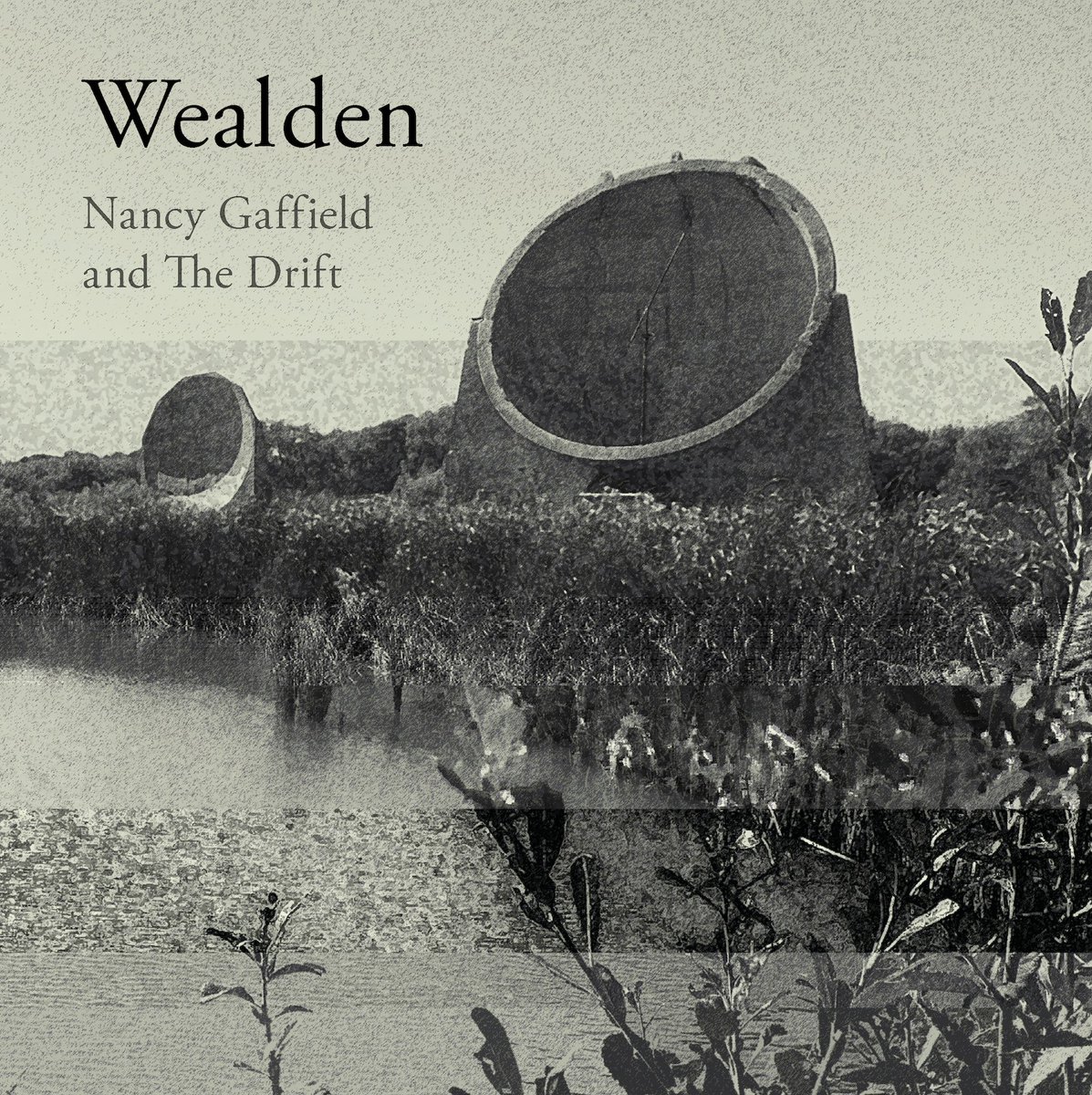
I don't know if the mirrors were built too late, or too soon, or if they were always out of time. The early radar team acknowledged the contribution of the 1920s experiment to systems planning: linking stations, plotting movements, measuring distance, direction, speed.
9.10am. I folded the map and put it back in the rucksack, along with the other things I'd taken out, the water, the snacks, the first-generation iPad. We were getting in on time, or a few minutes ahead of time, our arrival in Ashford seemed to take the train manager by surprise.
I knew that I wouldn't remember Ashford when I walked out of the station. I'd measured the distance to Fairfield with a ruler, a walk of twelve inches, ten miles, I knew that I would not be walking the length of a ruler. I knew that I could have taken another train to Appledore.
Appledore station was two miles across the marsh from Fairfield. It was possible that my motive for slogging from Ashford with several kilos of books on my back was to save £5 in train fare but I also wanted to walk into the landscape of 'Wealden' rather than be deposited in it.
I wanted to walk the work back into the landscape that it was made of and from and for. There would be a gathering and a short talk at Fairfield Church at 4pm, followed by a collective walk across the marshes to Brookland Church, where the performance would take place around 7pm. 
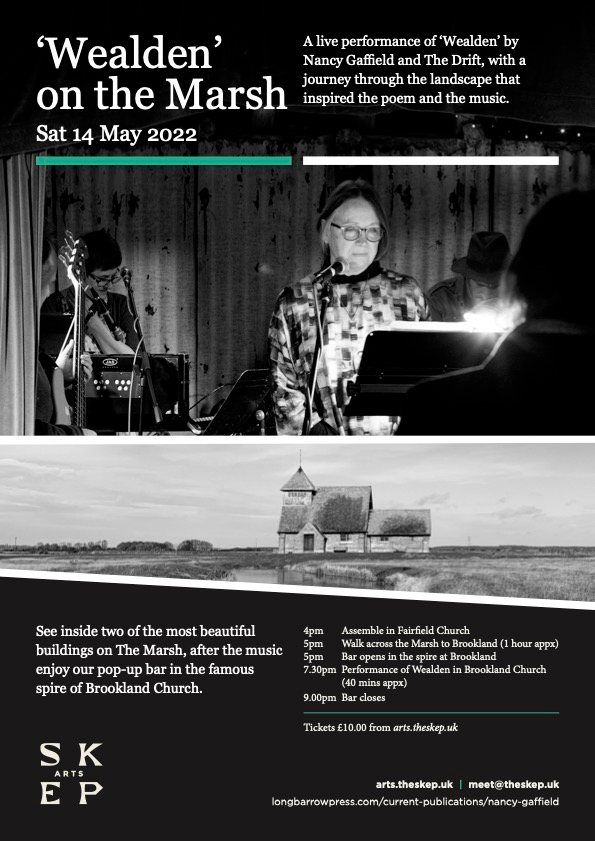
This end of this thread is not a walk. We'd never get there. Imagine the walk for yourself. The wrong turns, the unscheduled stops, the miles ahead. Here is the route, it is an approximation of the route, it doesn't show the path through Hamstreet or the old military canal. 
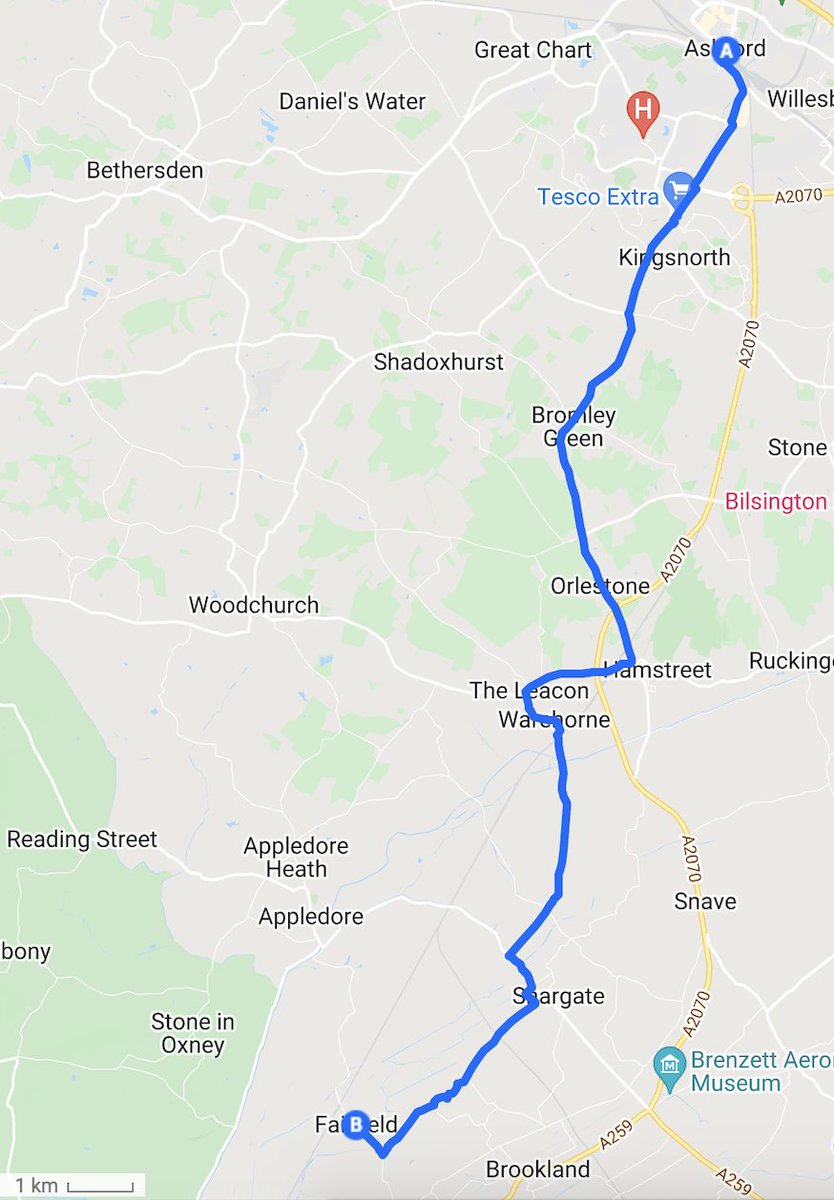
Here are some photos from the last few miles (Hamstreet to Fairfield), taken with Emma's 'obsolete' iPad Mini.
12.57pm. Buttercups, Royal Military Canal Path, Warehorne.
12.57pm. Buttercups, Royal Military Canal Path, Warehorne.
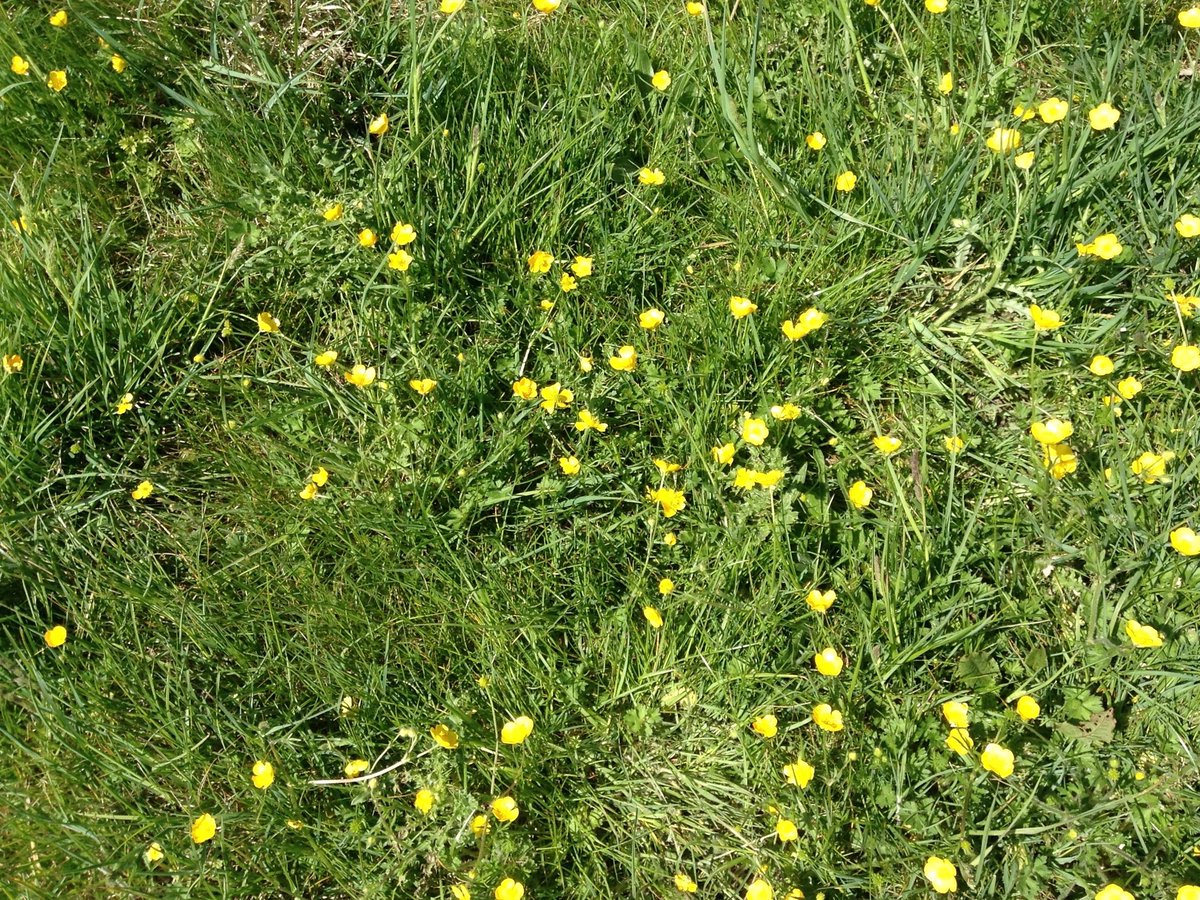
4.15pm. Amelia Fletcher and Rob Pursey of @thedriftkent narrating the histories of Romney Marsh, St Thomas a Becket Church, Fairfield. 
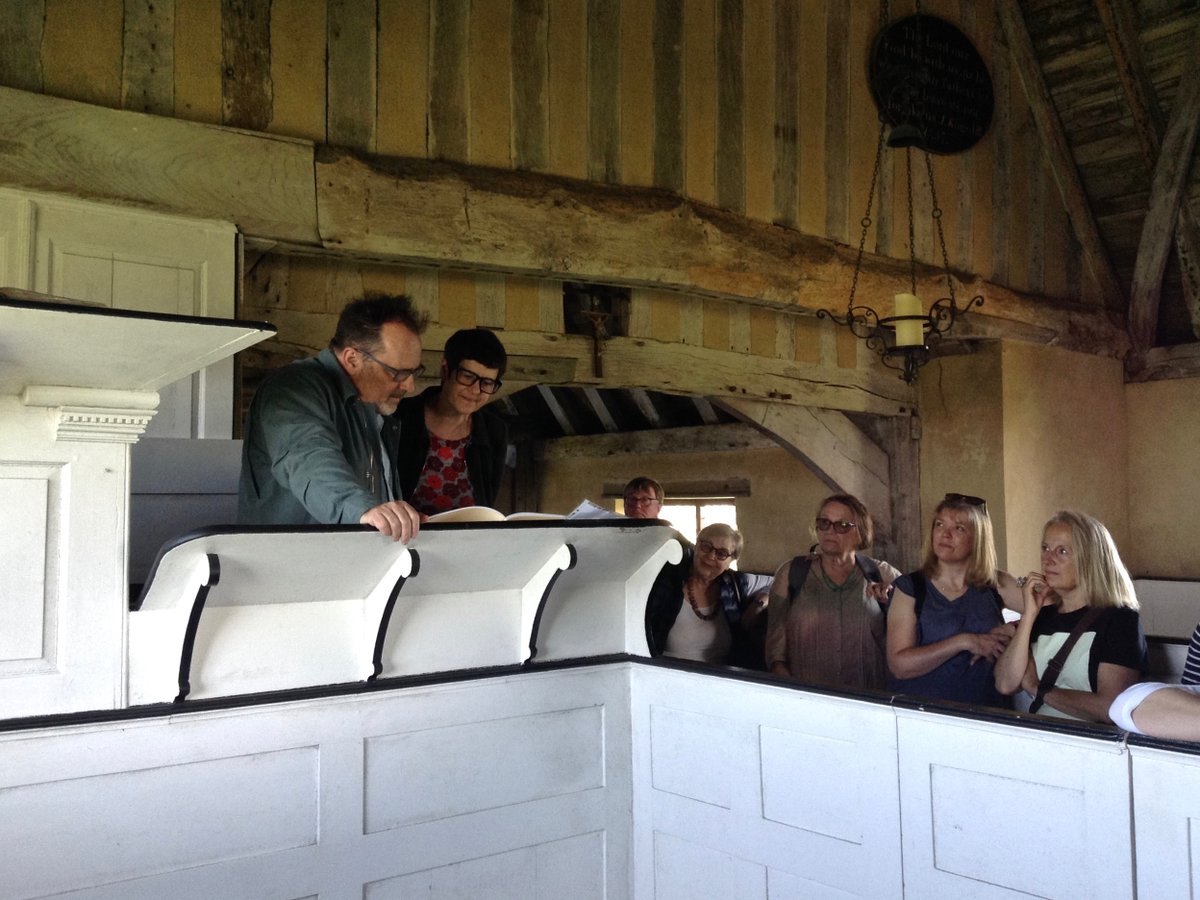
7.46pm. Nancy Gaffield (out of shot) and The Drift performing 'Wealden', Church of St Augustine, Brookland. 

'bound to the land & bound to leave it'
If you've enjoyed this thread (which, at 85 tweets, has gone as far as it can), here's a conversation with @nancyjgv1 and @thedriftkent: longbarrowblog.wordpress.com/2020/11/26/int…. Thanks to them for setting me on this road, and thanks for reading.
If you've enjoyed this thread (which, at 85 tweets, has gone as far as it can), here's a conversation with @nancyjgv1 and @thedriftkent: longbarrowblog.wordpress.com/2020/11/26/int…. Thanks to them for setting me on this road, and thanks for reading.
• • •
Missing some Tweet in this thread? You can try to
force a refresh

